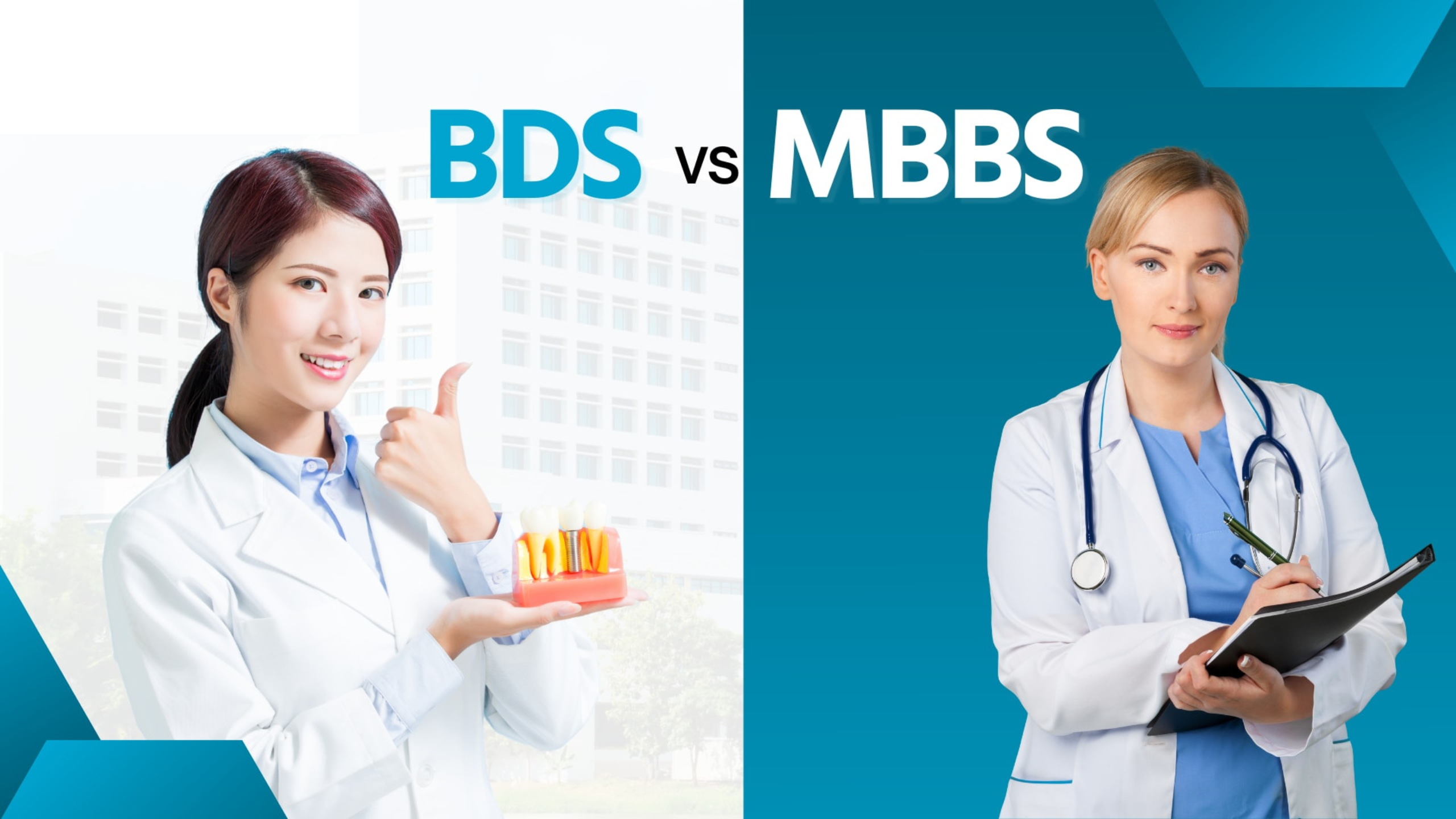
After completing Class 12 with Physics, Chemistry, and Biology (PCB), many students find themselves confused when choosing between MBBS and BDS. Both courses offer prestigious careers in the medical field but differ significantly in their specialization, job roles, and future prospects. Making the right choice requires understanding these differences to align with personal interests and long-term career goals. MBBS trains students to diagnose and treat various medical conditions, preparing them to become general physicians or surgeons. On the other hand, BDS focuses exclusively on dental and oral healthcare, producing qualified dentists. Despite MBBS being the more popular choice, BDS stands out as a strong alternative.
Understanding the pros and cons of each program is vital before making a decision. By comparing different aspects like duration, admission process, and job prospects, students can decide which course suits them better. Let's explore key differences between MBBS and BDS to help aspiring medical students choose the right path.
MBBS vs BDS – Overview of the Courses
MBBS (Bachelor of Medicine and Bachelor of Surgery) remains the most sought-after undergraduate course in India for PCB students who aspire to become licensed doctors. Admission to MBBS is granted through NEET, and only medical colleges recognized by the National Medical Commission (NMC) can offer this degree. It is the only pathway to becoming a certified allopathic doctor in India.
BDS (Bachelor of Dental Surgery) is the designated course for students aiming to become dental professionals. Admission to BDS is also granted through NEET, and the course is offered at dental colleges recognized by the Dental Council of India (DCI).
MBBS vs BDS – Course Duration
The duration of the MBBS program is 5.5 years, which includes four and a half years of academic learning and a one-year mandatory internship. During this internship, students work in hospital settings, gaining valuable hands-on experience that complements their theoretical education.
The BDS course takes five years to complete, comprising four years of classroom and clinical learning followed by a one-year rotatory internship. This internship helps students apply their dental knowledge in real-world scenarios under supervision.
MBBS vs BDS – Admission Criteria
To qualify for MBBS or BDS programs, students must pass their 12th standard with at least 50% in Physics, Chemistry, and Biology (40% for reserved categories). Admission to both courses is granted based on NEET scores. NEET serves as the single entrance exam for over 1 lakh MBBS and around 26,868 BDS seats in India across 706 medical and 313 dental colleges. The Medical Counselling Committee conducts the centralized NEET counseling process for seat allocation.
MBBS vs BDS – Career Prospects
After completing MBBS, graduates have a wide range of career options in both government and private sectors. Some prominent roles include:
-
Doctor
-
Junior Doctor
-
Physician
-
Junior Surgeon
-
Medical Lecturer or Professor
-
Clinical Researcher
-
Medical Scientist
After earning a BDS degree, graduates can also explore a variety of career paths in the dental and healthcare industry, such as:
-
Running a Private Dental Practice
-
Dental Consultant
-
Teaching in Dental Colleges
-
Oral Health Specialist
-
Dental Officer in the Armed Forces, CAPFs, Railways, or Government Services
MBBS vs BDS – Salary Comparison
Salaries for both MBBS and BDS graduates vary based on several factors including experience, specialization, employer, and location. Generally, MBBS graduates may earn higher initial salaries due to broader medical roles, but skilled BDS professionals can also achieve high earnings, especially those who establish private clinics or specialize further. Dedication, experience, and opportunities largely determine earning potential in both fields.
In conclusion, both MBBS and BDS offer promising careers in the healthcare sector. The decision ultimately depends on your interest—whether it's general medicine or dental care—and how you envision your professional life.
Salary after MBBS degree
|
Job Profiles |
Average Salary |
|
Doctor |
Rs. 5.4 LPA |
|
Medical Officer |
Rs. 5.2 LPA |
|
Surgeon |
Rs. 10.8 LPA |
|
General Physician |
Rs. 7.2 LPA |
|
Paediatrician |
Rs. 8 LPA |
Salary after BDS degree
|
Job Profiles |
Average Salary |
|
Dentist |
Rs. 3 LPA |
|
Lecturer |
Rs. 6 LPA |